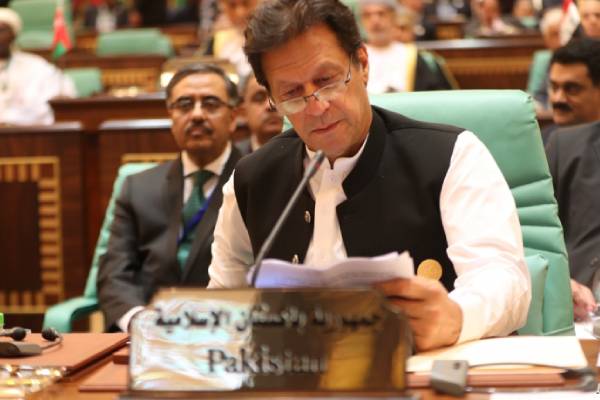ISLAMABAD, PAKISTAN - Officials in Pakistan confirmed Tuesday that Prime Minister Imran Khan had received a rare “message of goodwill” from his Indian counterpart, Narendra Modi, the latest in a series of moves signaling rapprochement between the nuclear-armed rival countries.
Modi documented the peace overture in a letter he sent to Khan extending greetings on Pakistan’s Republic Day.
“As a neighboring country, India desires cordial relations with the people of Pakistan, Modi wrote, but added, “For this, an environment of trust, devoid of terror and hostility, is imperative.”
An official in Khan’s office confirmed the contents of the letter to VOA on condition of anonymity.
Pakistan Day commemorates March 23, 1940, when Muslim minority leaders formally demanded independence from India, a former British colony.
Asad Umar, a senior Pakistani minister, wrote on his Twitter account that Modi’s “message of goodwill on 23rd March is a welcome step.”
Umar went on to note that Khan had been expressing “his desire for a peaceful South Asia with relationships with all our neighbor's based on mutual respect & (peaceful) coexistence.”
In back-to-back statements last week, Khan and Pakistan’s military chief General Qamar Javed Bajwa, advocated a “stable” relationship with India. They both called for a peaceful settlement to the long-running Kashmir territorial dispute with India, describing it as the main cause of bilateral tensions.
Bajwa stressed that “it is time to bury the past and move forward,” saying the rivalry between the two South Asian countries “is dragging the region back to the swamp of poverty and underdevelopment.”
The exchange of peace gestures comes a month after Indian and Pakistani border commanders mutually agreed to halt military skirmishes and reinstitute a 2002 cease-fire along their de facto Kashmir frontier, known as the Line of Control.
The Himalayan region is split between India and Pakistan. Both claim all of it and have fought two wars over the area since the two countries gained independence from Britain in 1947.
A Pakistani delegation traveled to India this week for the first talks in three years on water-sharing issues under a decades long bilateral arrangement, known as the Indus Water Treaty.
Indian and Pakistani foreign ministers are also due to participate in a multination conference on Afghanistan hosted by Tajikistan later this month. Until now, Islamabad and New Delhi avoided such interactions.
Bilateral tensions have worsened since August 2019 when Modi’s Hindu nationalist government revoked the semiautonomous status of Indian-administered majority-Muslim Kashmir and broke it into two union territories.
Pakistan denounced the move and downgraded an already strained relationship with India, escalating bilateral military tensions. Both countries sent combat planes into each other’s territory, with Pakistan shooting down an Indian aircraft and briefly capturing its pilot.
India accuses Pakistan of plotting cross-border terrorism and backing Muslim separatists fighting Indian rule in Kashmir.
Islamabad rejects the charges as an attempt to divert attention from what it says is Indian suppression of Kashmiris. Pakistan also alleges the Indian spy agency is funding and sponsoring terrorist attacks on Pakistani soil to destabilize the country.
(VOA)

